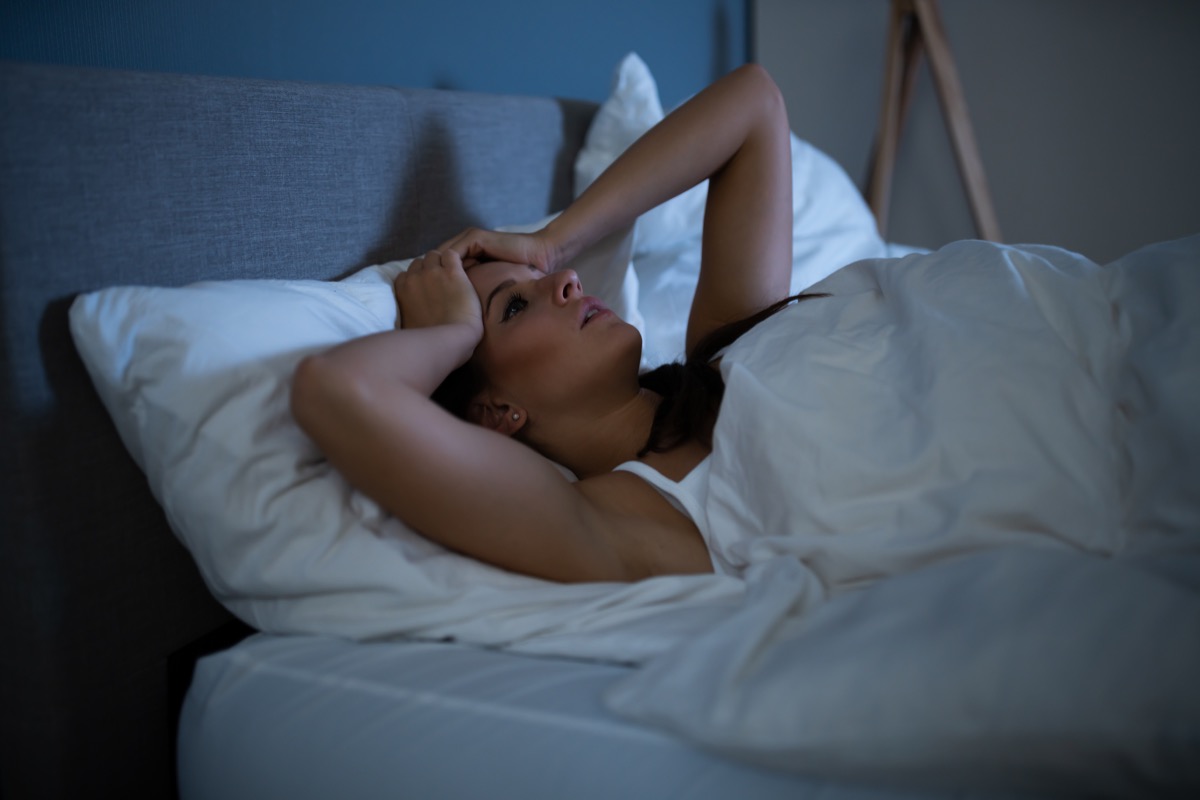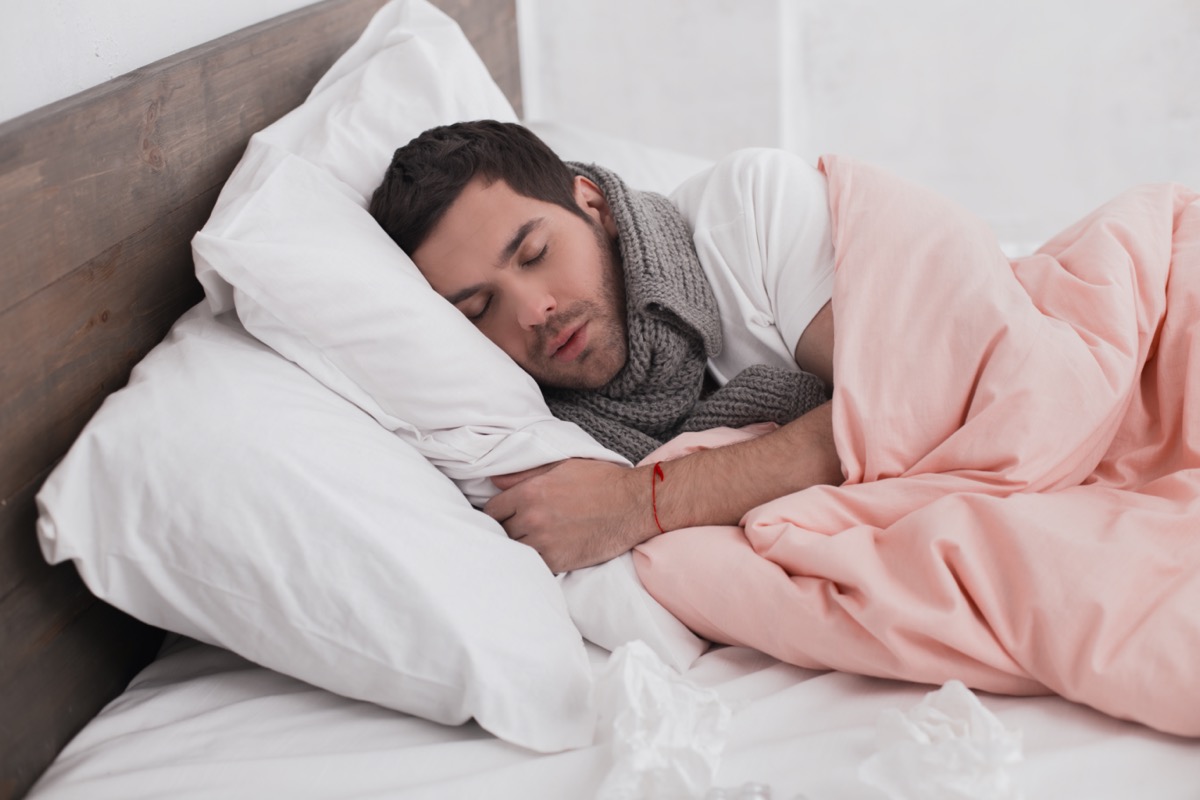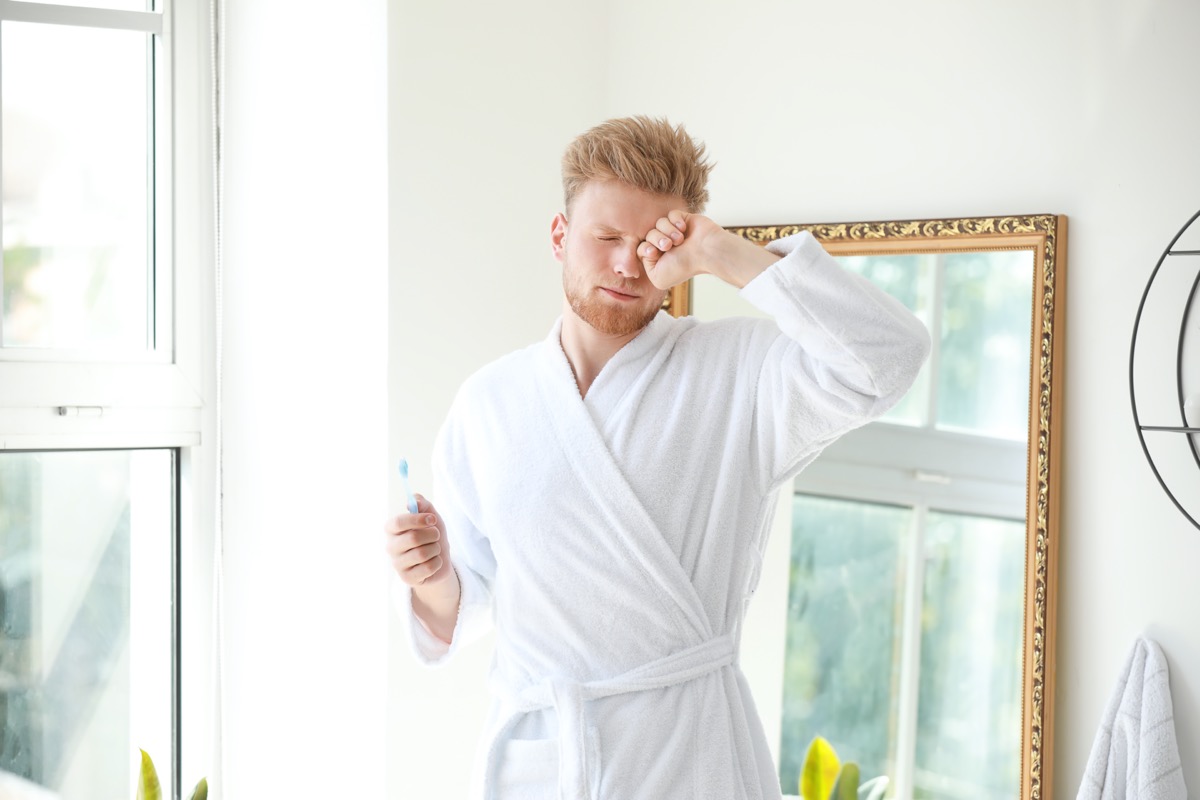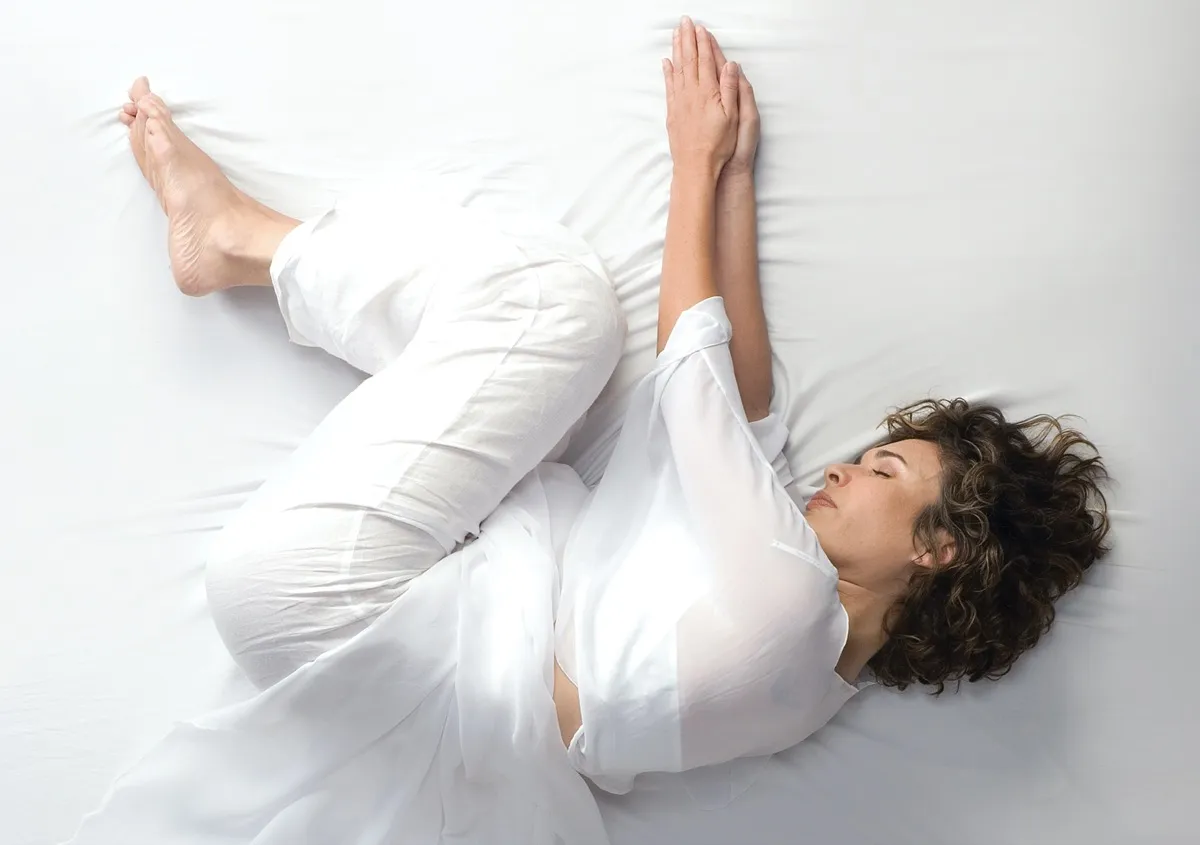One Secret Side Effect of Sleeping in Too Late, Says New Study
A few years ago, research published in the Journal of Psychiatric Research concluded that night owls—or those who prefer staying up late and waking up later—are more far likely to engage in nicotine habits, live alone, and remain single than their early-to-bed lark counterparts. The study also noted that owls have a 27% greater risk of depression than early birds.
Now, while that may seem like quite a lot to link to a bedtime, an all-new study conducted by scientists from the University of Colorado Boulder and the Broad Institute of MIT and Harvard and published in the journal JAMA Psychiatry has shed further light on just how strong the connection between your circadian rhythm and your mental health truly is. Also, this new study reveals that, if successfully implemented, certain subtle sleep scheduling changes can reap big mental health rewards. Keep reading to learn more about the findings—and the sleep habit that may be putting you at greater risk of depressive thoughts and a negative mindset. And for more sleep no-nos, don't miss the Bedtime Habits That Are Harming Your Body, Says Science.
Early to Bed, Early to Rise

If you're routinely finding yourself staying up late scrolling through your phone, take note: The new study concludes that staying up late and subsequently sleeping in for a longer duration than usual may increase risk of depression by upwards of 40%.
What's more, after analyzing a dataset encompassing roughly 850,000 people—their genetic information, their sleep tracking data, and their sleep habit surveys—the research team found that adjusting an individual's "sleep midpoint" (note: that's the halfway point between falling asleep and waking; so, if your bedtime is 11pm and your alarm is set for 6am, your sleep midpoint would be 3am) corresponded with a 23% drop in depression risk.
So let's say your usual bedtime is 1am. If you start hitting the sack at midnight and sleep for the same amount of time as usual, your depression risk may drop by over 20%. If you start going to sleep at 11pm, your depression risk may drop by as much as 40%. "We found that even one-hour earlier sleep timing is associated with significantly lower risk of depression," Professor Vetter says.
As of now, study authors are unclear if these benefits extend to people who are already early birds. So if you're already asleep by 9pm and up by 5am, it's uncertain at this point if changing your routine will have the same effect.
The Link Between Your Bedtime and Your Genes

Everyone knows that genes influence physical attributes like hair and eye color, but did you know that more than 340 gene variants are known to influence a person's "chronotype"—or his or her tendency to sleep at certain times?
The effect varies from person to person, but genes are believed to account for anywhere from 12% to 42% of a given person's sleep-time preference. By accounting for the influence of genes in this study, the researchers were able to get a much more detailed picture of how gene expressions influence sleeping and waking cycles on an hour-to-hour basis than previous studies. In short: this new study strongly suggests that people born with a genetic predisposition toward an earlier bedtime are indeed at a lower risk of depression.
Why Going to Bed Earlier Works

How could something as complex as depression be beaten by as simple a strategy as setting an earlier bedtime? Well, the study authors have a few theories. One is that early birds usually take in much more natural light, which is an important source of vitamin D and sparks "a cascade of hormonal changes that can influence mood."
On a more philosophical note, one scientist speculates that night owls are naturally at odds with the norms of society and prone to cynicism. "We live in a society that is designed for morning people, and evening people often feel as if they are in a constant state of misalignment with that societal clock," notes lead study author Iyas Daghlas, M.D.
Change Isn't Easy, But It's Possible

The study is simply the latest to suggest that living a more early-to-rise, early-to-bed schedule may be a healthier one. "This study definitely shifts the weight of evidence toward supporting a causal effect of sleep timing on depression," adds Daghlas.
But the question remains: How on earth does an owl become lark? "Keep your days bright and your nights dark," Professor Vetter recommends. "Have your morning coffee on the porch. Walk or ride your bike to work if you can, and dim those electronics in the evening." Also: Do These 5-Minute Exercises And You'll Sleep Like a Teenager.








